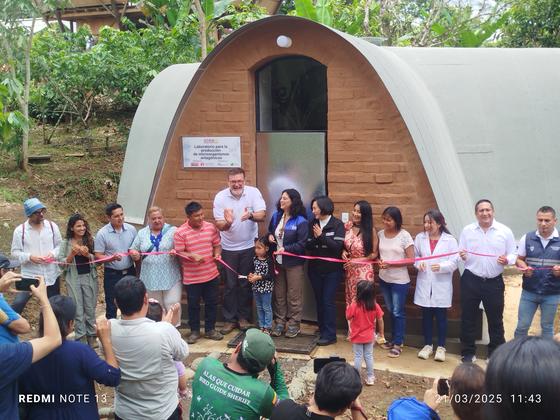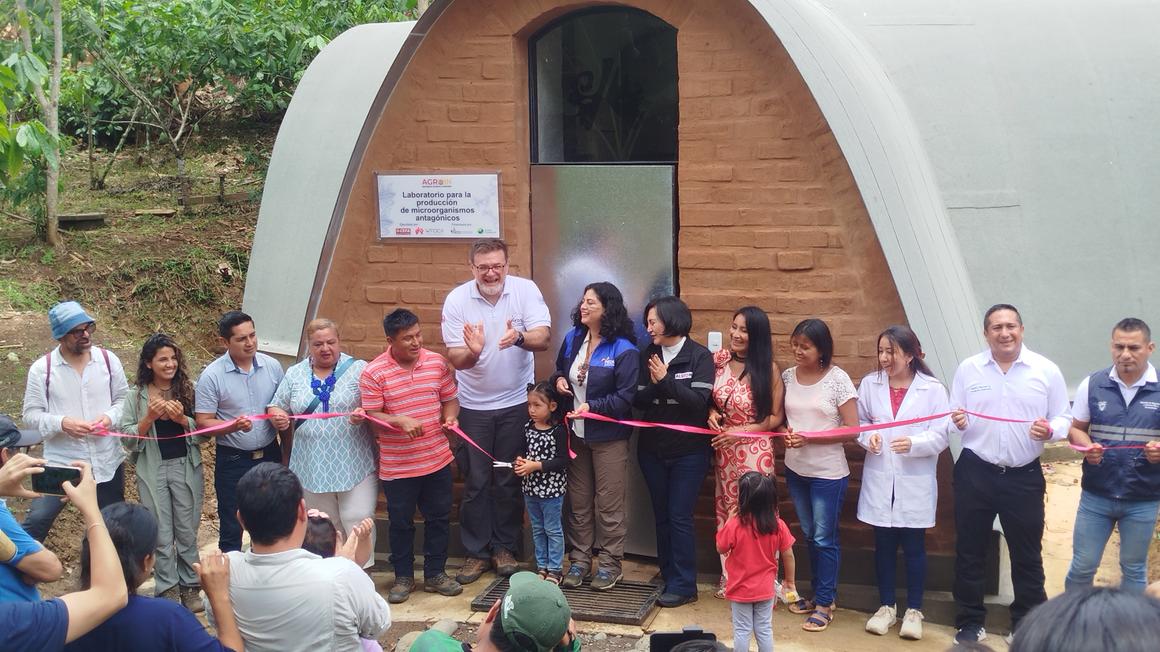
Ecofriendly and innovative farming initiatives in rural Ecuador
On 21 March 2025, the parish of Huaticocha in Ecuador’s Amazon region marked a final milestone for the communities affiliated with the AsoAmazonas association. Representatives from public and private institutions, alongside delegates from Alstom, gathered to officially inaugurate a laboratory dedicated to the reproduction of antagonist fungi. This initiative, supported by the Alstom Foundation, aimed to sustainably produce agricultural bio-inputs by employing microorganisms for the biological control of pests and diseases—offering an alternative to agrochemicals.
Launched in December 2023 in collaboration with the NGO CEFA, the project seeked to enhance employment opportunities and increase the income of farming families organised in associations. It aimed to strengthen their productive, organisational, and commercial capacities through agroecological practices and sustainable technologies. The project encompassed infrastructure development, technical training, institutional reinforcement, and the promotion of environmentally responsible production models within Ecuador’s Amazon region.
Sustainable production and local technology
- A bio-input production facility and a laboratory for the cultivation of antagonist fungi (Beauveria and Trichoderma) were constructed using bio-architectural principles and locally sourced materials. All essential equipment—such as water distillers, precision balances, and refrigeration units—was procured.
- The facility is now operated by young professionals trained by the National Institute of Agricultural Research (INIAP), who are championing safer and more sustainable agricultural practices.
Farmer Field Schools
- Four training modules were delivered, covering agroecology, soil conservation, water treatment, and the production of organic fertiliser (bocashi).
- A total of 47 individuals participated, with over 60% of attendees under the age of 30.
-
405individuals benefitted from the initiative
-
47participants in the Farmer Field Schools
-
>60%of the participants under the age of 30
Organisational Strengthening
- The SAC administrative and accounting management system was implemented across social enterprises and associations, including AsoAmazonas.
- Training was provided in social, commercial, and regulatory compliance management, reinforcing the Popular and Solidarity Economy.
Environmental commitment and future outlook
- A product traceability system was introduced to align with the European Union Deforestation Regulation (EUDR).
- The laboratory now serves as a replicable model in the region, with three additional artisanal laboratories already established in other provinces.
This initiative, which has directly benefitted 405 individuals, exemplifies Alstom’s enduring commitment to the communities in which it operates—driving projects that yield tangible social, environmental, and economic benefits.


